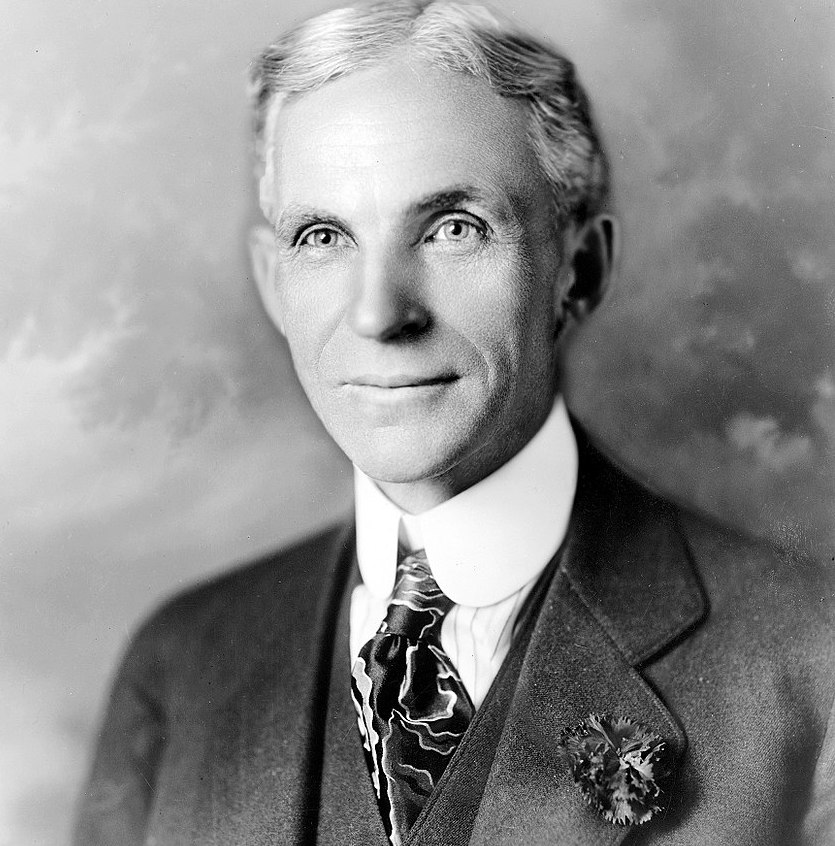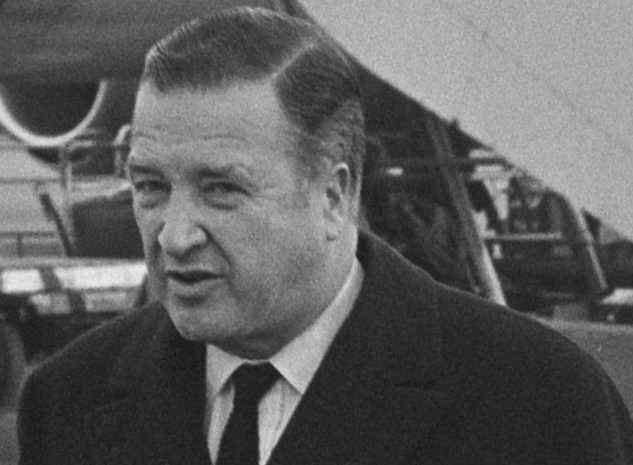
The Law of Empowerment is the twelfth of the 21 Irrefutable Laws of Leadership by John C. Maxwell. It states that:
ONLY SECURE LEADERS GIVE POWER TO OTHERS
“The best executive is the one who has sense enough to pick good men to do what he wants to be done, and the self-restraint enough to keep from meddling with them while they do it.” — Theodore Roosevelt
The Law of Empowerment states that secure leaders give power to others. There’s a tendency in modern business culture to create competition to drive productivity, but fostering feelings of insecurity and potential inferiority will encourage employees to leave.
The Famous Henry Ford Didn’t Embrace the Law of Empowerment
Henry Ford was a revolutionary innovator in the automobile industry. He co-founded the Ford Motor Company in 1903 with the belief that anyone making a good salary should own a car.
He carried out that vision with the Ford Model T. By 1914, Ford was producing nearly 50 percent of all the automobiles in the United States.
“However, all of Ford’s story is not about positive achievement, and one of the reasons was that he didn’t embrace the law of empowerment. Henry Ford was so in love with his Model T that he never wanted to change or improve it—nor did he want anyone else to tinker it. One day when a group of his designers surprised him by presenting him with the prototype of an improved model, Ford ripped its doors off the hinges and proceeded to destroy the car with his bare hands.” –John C. Maxwell

Because of Ford’s attitude, for almost twenty years, his company offered only one design, the Model T. Only in 1927, Henry Ford grudgingly agreed to offer a new car to the public but it was far behind its competitors.
The consequence was that in 1931, Ford’s market share went down to 28 percent, about half of what it produced seventeen years earlier.
“Henry Ford was the antithesis of an empowering leader. He always seemed to undermine his leaders and look over the shoulders of his people.”
Lee Iacocca, a former Ford President, commented after leaving the company, “Henry Ford had a nasty habit of getting rid of strong leaders.”
Ford most peculiar dealings were with his executives, especially with his son Edsel, who had worked at the company since he was a boy and had worked harder to keep the company going.
Henry eventually gave Edsel the presidency of the company, but at the same time he undermined him and backed other leaders within the organization. Henry could not resist tearing down promising leaders, and a result, the company kept losing its most promising executives. When Edsel died prematurely at age forty-nine in 1943 and another Henry Ford took over.
Another Henry Ford

Edsel’s oldest son, the twenty-six-year-old Henry Ford II left the navy to take over the company. He gathered the support of several key people and convinced his grandfather to step down so that he could become president in his place.
Henry took over a company that hadn’t made a profit in fifteen years and was losing $1 million a day! The young president knew he was in over his head, so he began looking for leaders. A team of ten men, headed by Colonel Charles “Tex” Thornton, who had decided they wanted to work together approached him. In the years to come, their contribution to Ford Motor Company was substantial and the group produced six company vice presidents and two presidents.
The second influx of leadership came with Ernie Breech, an experienced General Motors executive. Young Henry hired him to be Ford’s executive vice president.
Breech quickly brought in more than 150 outstanding executives from General Motors, and in 1949, Ford Motor Company sold more than a million Fords, Mercurys, and Lincolns—the best sales since the Model A.
Who is the Boss?
But then Henry began pitting one top executive against another. Anytime an executive was gaining power and influence, Henry would undercut the person’s authority by moving him to a position of less importance, supporting the executive’s subordinates, or publicly humiliating him. This continued all the days Henry II was at Ford.
As one Ford president, Lee Iacocca, commented after leaving the company, “Henry Ford, as I would learn firsthand, had a nasty habit of getting rid of strong leaders.”
” If Henry Ford II had lived by the law of empowerment, the Ford Motor Company might have grown enough to eventually overtake General Motors and become the number one car company again. But only secure leaders are able to give power to others. “
Of the many laws described by John C. Maxwell, this is one of those that more visibly influence organizations. Leaders who truly empower their people are able to unleash their potential and greatly benefit the organization and the employees. However, those “insecure leaders”, who play power games all the time, end up undermining the organization and disaffecting their employees. Such negative leaders may even fare well personally in the company, at least for a time. They often keep the power they so much want, but the consequences of their behavior are profoundly negative for the success of the organization.
“Both Henry Fords failed to abide by the Law of Empowerment. Rather than finding leaders, building them up, giving them resources, authority, and responsibility, and then turning them loose to achieve, they alternately encouraged and undermined their best people because of their own insecurity. But if you want to be successful as a leader, you have to be an empowerer. Theodore Roosevelt realized that, “the best executive is the one who has sense enough to pick good men to do what he wants done, and the self-restraint enough to keep from meddling with them while they do it.”
Barriers to Empowerment
Why do some leaders violate the law of empowerment? These are some of the most common reasons:
Desire for job security
A weak leader worries that if he helps subordinates, he may become dispensable. However, the best way to make yourself indispensable is to make yourself dispensable. If you learn to empower others and help them develop, you will become even more valuable to the organization.
Resistance to change
Empowerment brings constant change because it pushes people to grow and innovate. Change becomes the price of progress, but many try to avoid change at all costs.
Lack of self-worth
Many people obtain their personal value and self-esteem from their job and position. If you try to change that, you become a threat. But for those who have self-confidence, change becomes a stimulus, because it brings new opportunities that they are wiling to explore.
Leading by Lifting up Others
“Mark Twain once remarked that great things can happen when you don’t care who gets the credit. But you can take that a step farther. I believe the greatest things happen only when you give others the credit. That’s the law of empowerment in action. ”
Practice the Law of Empowerment

Abraham Lincoln was truly gifted at giving his power and authority to others. His name was Abraham Lincoln. The depth of Lincoln’s security as a leader can be seen in the selection of his cabinet after he became president. Most presidents choose allies for those important positions, but Lincoln took another approach.
He not only selected former political rivals for cabinet posts, but he deliberately surrounded himself with all of his former disappointed antagonists to the presidency. A biographer said:
“It was a mark of his sincere intentions that Lincoln wanted the advice of men as strong as himself or stronger. That he entertained no fear of being crushed or overridden by such men revealed either surpassing naïveté or a tranquil confidence in his powers of leadership. “
Lincoln lived the Law of Empowerment. His security enabled him to give his power away.
Empowering Others
If you want to be a successful leader, you must learn how to empower others. Here are a few ideas for empowering leaders.
1 – Identify people who have the best potential to become strong leaders
2 – Build them up. The more you raise people up, the more you go up too.
3 – Give them resource, authority and responsibility.
4 – Turn them loose to give the same back.
When leaders don’t empower others, they create barriers throughout the organization.
Simon Sinek in “Start With Why” says:
“In the military, they give medals to people who sacrifice themselves so that others may gain. In business, they give bonuses to people who sacrifice others so that they may gain.”
The Law of Empowerment is all about sacrificing yourself so that the people around you may gain the knowledge and experience they need. But by empowering others, good leaders become great.

Trackbacks/Pingbacks